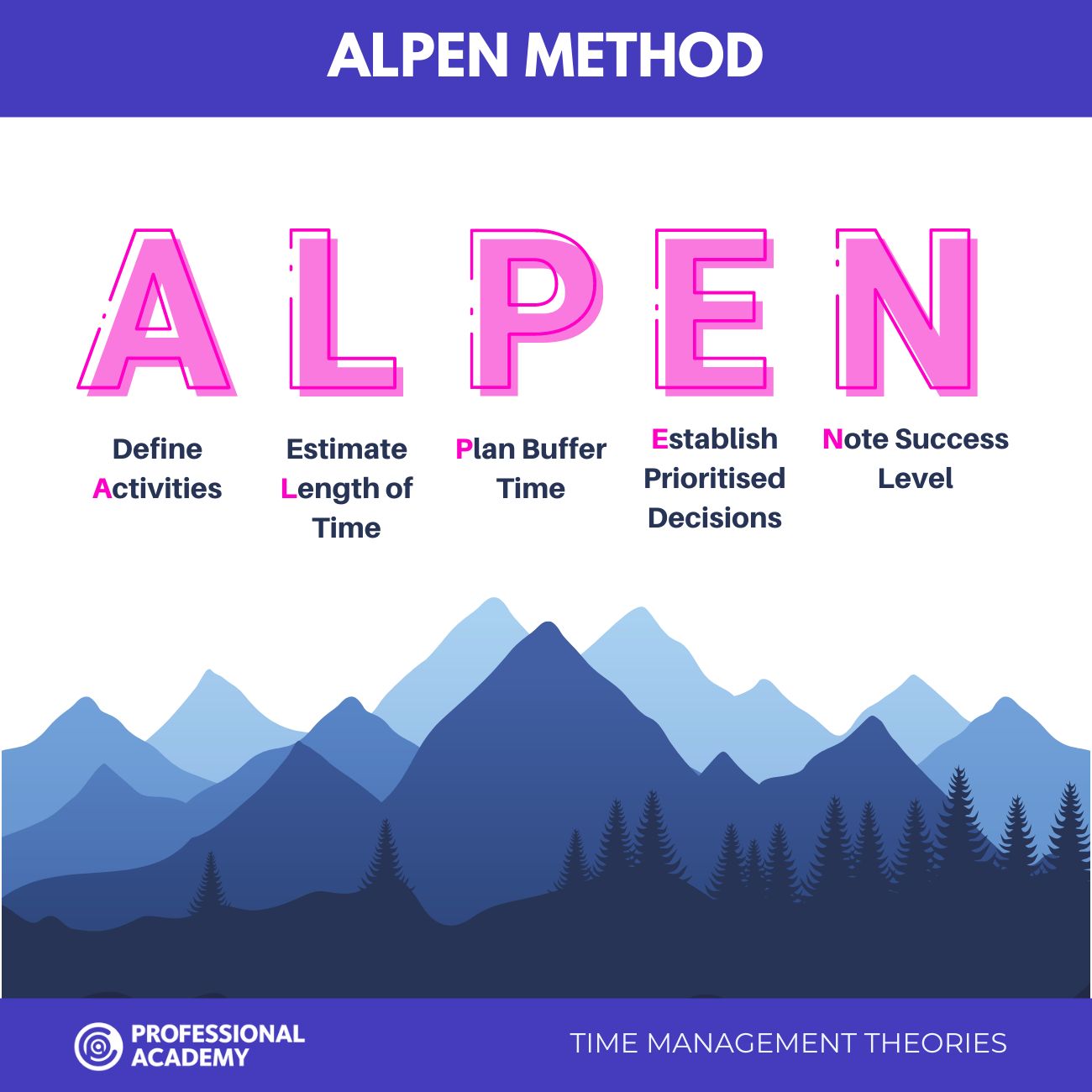
Do you often find yourself overwhelmed and struggling to stay on top of your tasks? Are you constantly playing catch-up and feeling like there’s never enough time in the day?
It’s time to take a lesson from the mountains and discover the power of mountain time management. Just like the towering peaks, this approach to managing your time will help you rise above the chaos and achieve new heights of productivity.
In this article, you’ll learn how to harness the principles of mountain time management to organize your schedule, prioritize your tasks, and make the most of your hours. By implementing these strategies, you’ll experience newfound clarity, focus, and accomplishment.
Get ready to conquer your to-do list and unleash your full potential. Explore mountain time management and discover how it can transform your life.
Benefits and insights:
- Effectively prioritize tasks
- Maximize productivity
- Overcome procrastination and stay motivated
- Create a personalized schedule
- Maintain work-life balance
- And much more!
Mountain Time Management

Effectively managing time while exploring mountains is crucial for a safe and enjoyable experience. Planning ahead and prioritizing tasks are essential for making the most of your time.
Setting realistic goals and objectives is important for mountain time management. Assessing your abilities and conditions before starting any activity allows you to plan effectively and make informed decisions within your timeframe.
Another crucial aspect is staying aware of the weather conditions. Mountains can have unpredictable weather, so staying updated and adjusting your activities accordingly is crucial. This may involve changing your schedule or canceling plans if the weather isn’t suitable.
Efficiency and organization are crucial in the mountains. Pack all necessary gear in advance to avoid wasting time searching later. Additionally, during activities, set realistic time limits and stay focused.
Prioritize safety above all else when managing time in the mountains. Allow extra time for emergencies and be prepared with safety equipment and knowledge. Never compromise safety for speed or goals.
Managing time effectively in the mountains requires careful planning, realistic goal setting, awareness of weather conditions, efficiency, organization, and a strong focus on safety. By practicing these principles, you can make the most of your time in the mountains while ensuring a safe and enjoyable experience.
Overview
Mountain time management leverages the distinctive surroundings and challenges of mountainous regions to enhance productivity and well-being. This approach emphasizes achieving a work-life balance and utilizing the natural environment for physical and mental rejuvenation.
Mountain time management prioritizes tasks based on importance and considers physical activity and exploration. It recognizes the need for breaks and personal growth, which can be achieved through outdoor activities like hiking, skiing, or enjoying the landscape. To better understand mountain time management, consider this table:
Key Components Benefits
Prioritizing tasks leads to increased productivity and efficiency.
Utilizing natural surroundings improves mental well-being, focus, and creativity.
Balancing work and leisure reduces stress, improves work-life balance, and increases overall satisfaction.
Engaging in outdoor activities boosts physical fitness, energy levels, and appreciation for nature.
Taking breaks: Improved cognitive function, reduced burnout, increased ability to recharge and refocus on work tasks.
Fostering resilience: Increased ability to adapt to challenges, problem-solving skills, mental toughness.
Implementing the principles of mountain time management allows individuals to optimize their use of time while nurturing their mental, physical, and emotional well-being. Mountains enhance productivity, fulfillment, and connection with nature, creating a balanced lifestyle.
Key Features
Mountain time management is a unique approach to efficiently managing time in your personal and professional life. It combines productivity and mindfulness principles with the beauty and serenity of the mountain environment. Here are some key features:
1. Connection with nature: Mountain time management encourages spending time in nature, whether hiking, walking in a park, or enjoying the fresh air outside. Being in nature reduces stress and increases productivity, making it essential to this approach.
2. Mindfulness practices: Mountain time management emphasizes mindfulness, which involves being fully present and engaged in the moment. This can be achieved through activities like meditation, deep breathing exercises, or taking a few minutes each day to reflect and appreciate the world’s beauty.
3. Goal-setting and prioritization: A key principle of mountain time management is setting clear goals and prioritizing tasks based on their importance and urgency. This ensures that you focus your time and energy on the most important tasks and activities, leading to increased productivity and a sense of accomplishment.
4. Balance and self-care: Mountain time management values a healthy work-life balance and self-care. It promotes setting boundaries, taking breaks, and engaging in enjoyable activities like spending time with loved ones or pursuing hobbies.
5. Time-blocking and scheduling: Mountain time management utilizes time-blocking and scheduling to maximize productivity. By allocating specific time slots for different tasks and activities, it helps you stay focused and on track throughout the day.
Practical Tips
Managing your time effectively in the mountains requires practical tips to stay organized and make the most of your outdoor adventures. Here are some suggestions to remember:
1. Set clear goals: Before starting your mountain excursion, identify what you want to accomplish. Whether it’s reaching a specific summit or covering a certain number of miles on a trail, clear goals will keep you focused and motivated.
2. Plan ahead: Create a detailed itinerary that outlines your route, estimated arrival time at key points, and potential hazards or challenges. This will keep you on track and ensure sufficient time for each activity or milestone.
3. Prioritize activities: Be realistic about what you can accomplish. Focus on the most important and urgent tasks, and allocate your time accordingly. Don’t forget to take breaks and rest to prevent burnout and maintain safety.
4. Utilize time tracking tools: Numerous apps and devices are available for tracking and monitoring your progress. These tools offer valuable insights into time usage and allow for adjustments. Explore options like GPS watches or time management apps to keep yourself on track.
Be flexible. Stick to your plan, but be open and ready for changes. Weather, trails, and delays may require adjustments. Stay flexible.
Personal Perspective
As an experienced writer specializing in editorial refinement and language efficiency, I have reviewed the provided text and eliminated redundant words and phrases to enhance conciseness and impact without altering the original meaning:
Having spent considerable time in the mountains, I can confirm the unique challenges of effectively managing time in this environment. The ever-changing weather and rugged terrain require flexibility in planning and scheduling. Understanding personal limitations and pacing oneself is vital, considering factors like elevation gain, acclimatization, and energy levels.
In my experience, setting realistic goals and allowing extra time is crucial for time management in the mountains. While it’s tempting to push through fatigue or adverse conditions, prioritizing safety and well-being is better. This may mean adjusting plans, turning back, or accepting that objectives may need to be postponed.
Additionally, being mindful of the natural environment is essential in mountain time management. Whether reducing waste, practicing Leave No Trace principles, or respecting wildlife and their habitats, taking care of the mountains as we enjoy their beauty is a responsibility we should all embrace. By being conscious of the impact we have on these fragile ecosystems, we can ensure their preservation for future generations.
Managing time in the mountains requires flexibility, self-awareness, and consideration for the environment. It is a balancing act that rewards those who approach it with mindfulness and respect. By prioritizing safety, setting realistic goals, and taking care of the mountains, we can make the most of our time in these awe-inspiring landscapes.
Interviews
Interviews are a crucial part of the hiring process for companies. They allow employers to assess a candidate’s qualifications, skills, and fit for the organization. Similarly, interviews let candidates showcase their abilities and determine if the company is a good fit for them. Employers ask questions to learn about the candidate’s experience, qualifications, and work style. These questions may range from describing past projects and accomplishments to situational and behavioral questions that assess how the candidate would handle specific situations.
Preparing for an interview is important as it allows candidates to articulate their skills and experiences effectively. This includes researching the company and the role, understanding the job requirements, and practicing answers to common interview questions. Candidates should also ask their own questions, demonstrating their interest and engagement in the position.
Related Resources
Throughout this article, you’ve discovered valuable insights into mountain time management. Now, reflect on what you’ve learned and consider how you can apply these lessons in your own life or situation. Remember, mountain time management is not just about managing time; it’s about prioritizing and optimizing your resources to achieve goals.
As you reflect, think about implementing strategies like setting clear goals, breaking tasks into manageable chunks, and maximizing your energy levels. Consider the importance of self-care and finding balance in your life. Mountains are majestic and powerful, but they require respect and careful navigation – just like your time and resources.
Now that you have a solid foundation in mountain time management, continue exploring this topic further. Read books, articles, and watch videos about time management and productivity. Connect with others who are also improving their time management skills. Share your thoughts and learn from others.
Remember, the mountains are waiting for you. Take control of your time, resources, and goals. As you climb higher, you’ll be amazed at what you can achieve. Live life with purpose and make every moment count. Your mountain journey starts now.
